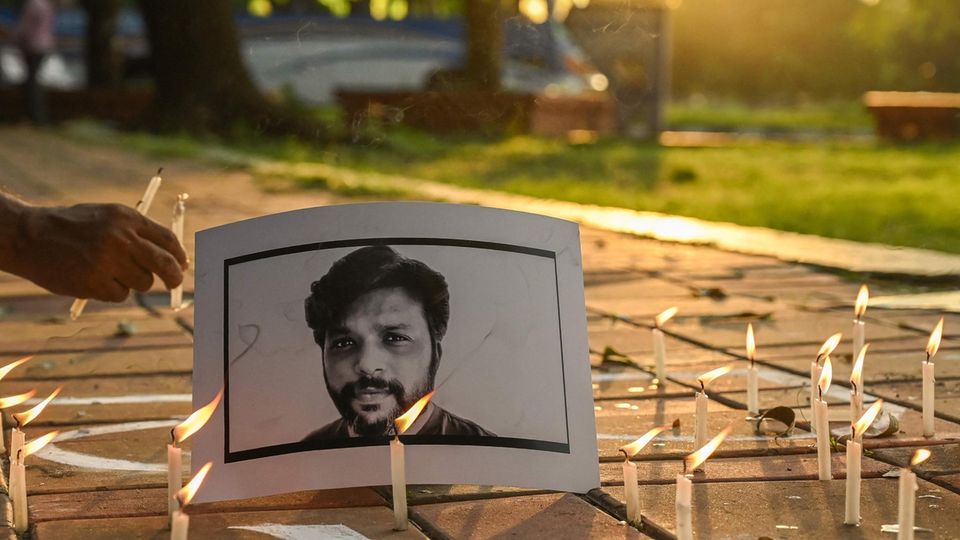Under the new, old rulers, Afghanistan is threatened with a relapse into earlier times. The Taliban’s rigorous fanaticism could be dangerous for many Afghans – not just women and girls.
A new era is dawning in Afghanistan. Strictly speaking, it is a leap back in time – somewhere at the end of the past millennium, when the radical Islamist Taliban ruled the Hindu Kush once before. Many Afghans remember it with horror: the relentlessness of their fighters, their fanaticism and brutality. Arbitrariness rules where the Taliban is in charge, and their interpretation of Sharia law is so rigorous that even the smallest offenses are severely punished. The rules include: It is best for women to stay at home. Men are not allowed to shave. Music is largely banned.
Who is the Islamists now targeting?
Above all, those Afghans who have worked in any form over the past 20 years with the USA, with German or other Western troops, could now be targeted by the Islamists. Some consider the so-called local staff to be traitors or spies, and many fear for their lives. Whereby: There are differences. Projects that revolve around food and agriculture, that is, in a certain way “neutral”, for example Welthungerhilfe, are left in peace by the Taliban. But if aid contradicts the worldview of the new, old rulers, then danger, revenge or even death threatens.
Zalmai A. is one of these local helpers. He worked as a translator for the German Armed Forces: “Do you hear my daughter crying?” Asks in a voice message. In the background a child is sobbing desperately. “She’s scared about the shooting. There are shootings going on in our area right now.” Actually, Zalmai wanted to get passports for the exit, but then the Taliban attacked and “everyone wanted to go home quickly”.
Meanwhile A. doesn’t know what to do anymore. A month ago, he and his family could have fled to Pakistan or Iran, he says. Because he was hoping for help from the German government, he stayed. Now he can only hope that this decision will not cost him his life.

Zameri S. (left) worked for the Americans for eleven years – among other things as a security guard. Here he poses with his 18-year-old son Fardin, who was injured in a bomb attack on US troops in 2016. In their hands they hold the picture of Fahim, the eldest son of the family – he died at the hands of the Taliban. Like so many local employees, they are also allowed to travel to the USA, but require a special visa, which is currently difficult to apply for. This also delays the time when they can leave Afghanistan.
Gul B.of her inner-Afghan escape with her husband and four children to a makeshift refugee camp south of Mazar-i-Sharif. The Taliban had previously appeared in her home village for the first time. “We are very afraid of them. They wear turbans and scarves in front of their faces. They know no mercy. They just kill people. When I was little they also killed my brother,” says Gul.
“When the foreigners were still here, everything was quiet. But now that they are out, the situation has gotten very bad,” she says. If they had to flee, then like Zalmai A. she and her family would have fled to Pakistan or Iran. “But we have no money. We have no chance at all.”

The new rulers are also likely to be dangerous for journalists. So was the Indian photographer in mid-July Danish Siddiqui died in a Taliban attack on the Afghan military in the Spin Boldak region. Targeted attacks were and are also on women’s rights activists, as well as on election observers and politicians. This is how the chief spokesman for the Afghan government died last. He was shot dead in a mosque while praying on Friday.
The Taliban rule is particularly terrifying for Women and girls. The Islamists hadn’t even conquered half the country when the government banned women and girls from singing – as a preliminary concession to the Taliban. The regulation stipulated that women and girls from the age of 12 were no longer allowed to sing in public, including the national anthem. Only events without men present are allowed. The ban also applies to music lessons by male teachers.
Attacks on “false” Muslims
The Taliban are not the only Islamists in Afghanistan willing to use extreme violence. In March there was an attack on a school in Kabul in which more than 60 people were killed – including a striking number students. Presumably the bomb exploded on purpose at the time to damage the “secular education for girls”, which Islamists reject. The Afghan government at the time accused the Taliban of the act, but they in turn accused the ISKP, the Afghan branch of the Islamic State. The terrorists had already carried out several attacks on Shiites who, in their eyes, are not “real” Muslims.
Swell: RTL, “”,, DPA, AFP, “”, Deutschlandfunkkultur
David William is a talented author who has made a name for himself in the world of writing. He is a professional author who writes on a wide range of topics, from general interest to opinion news. David is currently working as a writer at 24 hours worlds where he brings his unique perspective and in-depth research to his articles, making them both informative and engaging.




